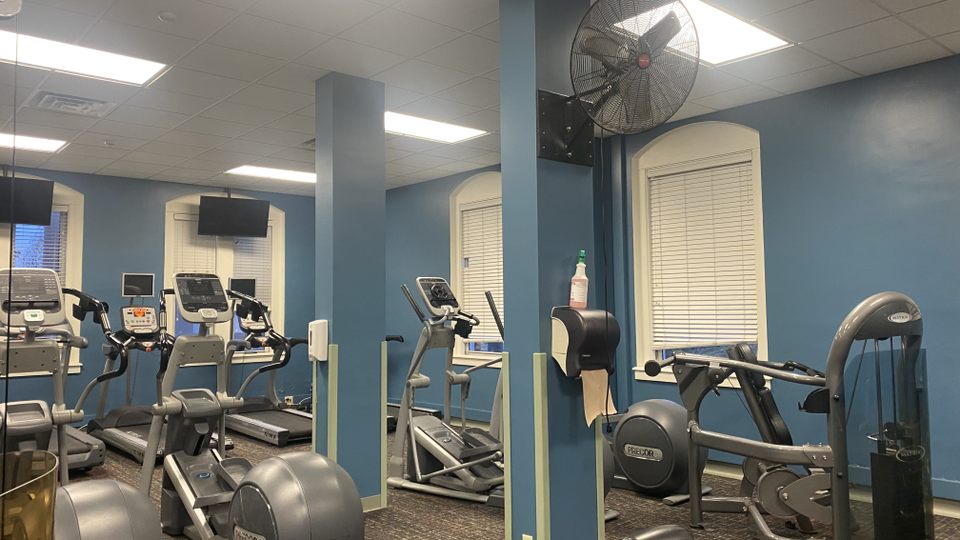
For women, going to the gym is often an uncomfortable experience. Around 56% of 1,107 women surveyed by Run Repeat in 2021 had first-hand experiences of unwanted attention, commentary or physical contact in the gym. The #gymcreep trend that garnered widespread attention and participation on TikTok is a testament to the prevalence of gender-based harassment in gyms. Women on TikTok documented and exposed men who followed women around gyms or inappropriately touched them.
Experiencing harassment negatively affects gym usage: 14% of the women surveyed who experienced harassment firsthand stopped going to the gym, 20% changed their gym routines to avoid certain areas and 20% changed their clothes or appearance.
These facts should raise concerns because exercise is important for physical and mental well-being. When gyms are uncomfortable places for women, women are left without welcoming spaces to exercise. Women need comfortable, harassment-free gym spaces. This is especially true for undergraduate women. Low levels of physical activity are associated with increased anxiety. Stressed-out undergraduate women need spaces to workout to maintain their mental and physical health.
It is time for William Jewell College to consider how it can better accommodate women seeking spaces to exercise. Currently, the school has one 24-hour gym that is open to all students. Many women, myself included, avoid the gym out of fear of harassment. For myself, this is not due to any experiences of harassment on campus but an aversion I have developed from interactions with men in gyms off-campus.
One popular solution to the problems faced by women in gyms has been to create women-only gym spaces. Designing separate spaces for women in gyms is intended to protect them from the predominant perpetrators of harassment: men. In women-only spaces, women can exercise without fear of uncomfortable staring, inappropriate touching and unwelcome recommendations or compliments. Instead, women get to enjoy the company of other women, which may also provide opportunities for camaraderie and new friendships.
Women-only gym spaces have a few flaws. First, these spaces often limit women to a certain set of training equipment or training classes designed for women. Many find these limitations frustrating and exclusive. Second, women-only gym spaces sometimes limit access to only cisgendered women. As a result, these spaces fail to accommodate non-cisgender people, who are also common victims of harassment.
Despite these flaws, a solution like women-only gym spaces would prove beneficial at William Jewell College. The college could designate a few hours on two or three days a week for woman-identifying and non-cisgendered students. This solution would grant both women and non-cisgendered people on campus exclusive access to all available gym equipment, free from the risk of harassment. Although some may argue these would merely be gym hours that exclude cisgendered men, the fact that women and non-cisgendered people are the common targets of harassment by cisgendered men makes the exclusionary period acceptable.
Enforcement may raise additional concerns. How would the College enforce this policy given the complicated politics surrounding gender identities? Enforcement, however, may not be necessary. By simply designating certain hours as “women and non-cisgendered only,” women and non-cisgendered people would know of specific times when other women and non-cisgendered people would also be in the gym. There is comfort in numbers, and such comfort may help to encourage students with these identities to utilize the gym. Furthermore, cisgendered men may respect the policy and avoid using the gym during these hours without enforcement.
Another solution to the problems faced by women in gyms would be the creation of a supportive fitness organization for women and non-cisgendered people. For example, CHAARG is an up-and-coming national organization that has established health and wellness communities for undergraduate women at numerous United States colleges. The organization provides weekly fitness classes and connects members with small groups to help women grow confident in their fitness journey. This organization, or organizations like it, would provide women with training and support systems to help them feel more comfortable in gyms.
CHAARG has its own flaws. The organization requires interested students to pay $35 to $155 per semester, quarter or year (depending on the university) to become a member. The organization does provide accessibility support for students in need, which may help those who cannot afford such fees. Additionally, the organization does not portray itself as expressly inclusive of non-cisgendered people. According to CHAARG’s terms and conditions, the organization “does not categorically deny membership to an individual, based on race, color, religion, sex, age, national origin, sexual orientation, veteran’s status, or the presence of a disability.” Importantly, gender identity is excluded from this list.
A fitness organization like this would benefit the College by providing students new to fitness with training and support. Instead of CHAARG, students could create a more accessible and inclusive organization. The organization could utilize fitness expertise within the student body by offering student-led fitness classes. Also, opening the organization up to all students would extend training and support to any fitness training newbie on campus. The organization would help to prevent the embarrassment many feel when using gyms without prior training or experience.
William Jewell College could encourage better health on campus by designating specific hours in the gym for women-identifying and non-cisgendered students. The college would also benefit from a student-led fitness organization. Both solutions address the harassment and embarrassment that continue to deter students from the gym. If adopted, the College would take significant steps towards recognizing and responding to the challenges faced by women, cisgendered people and those who lack fitness training on campus.
